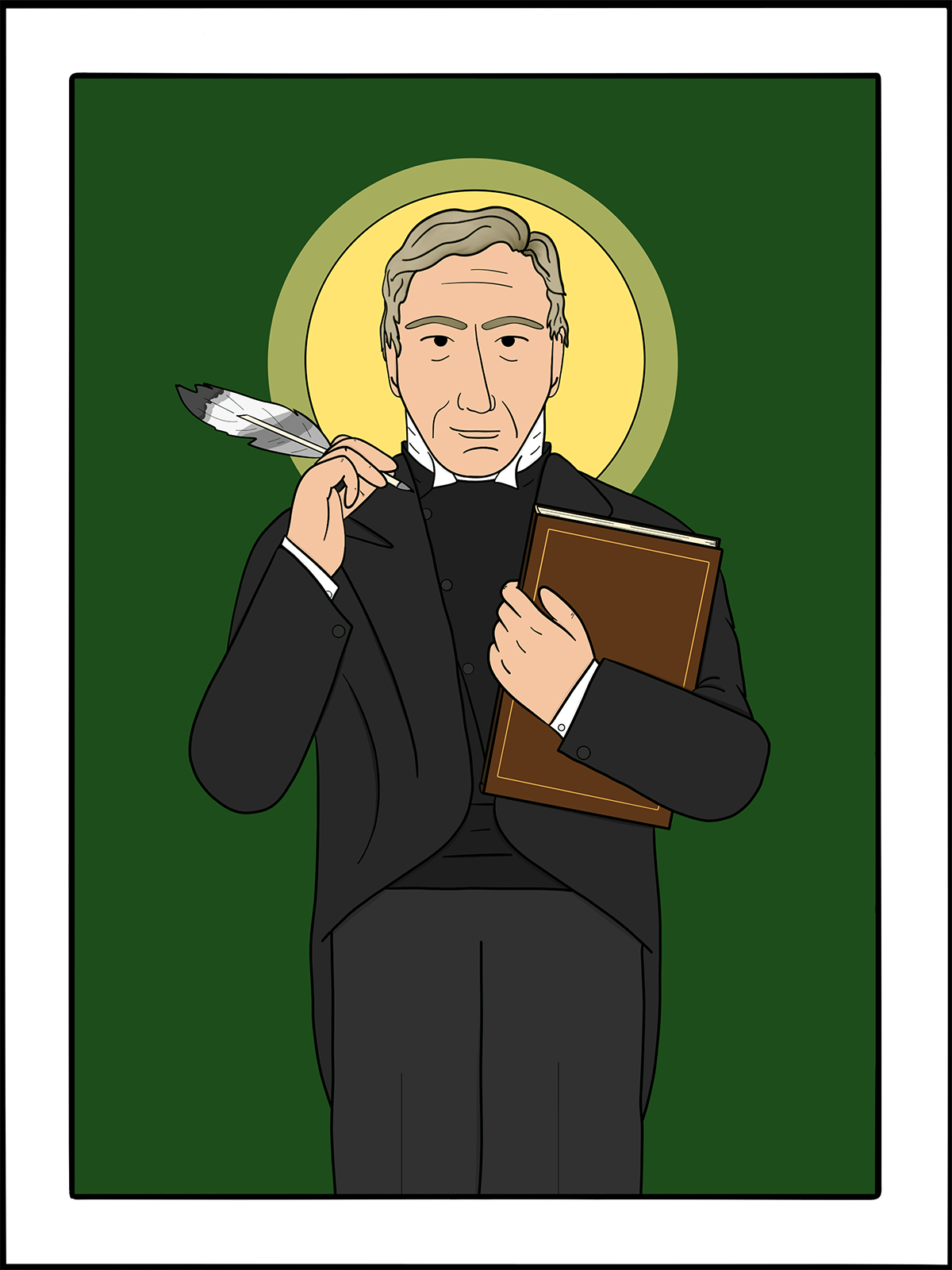
March 29
John Keble
Priest and Poet, 1866
art by Rev. Kirsten Kohr of Uhrichsville, Ohio Grant, O God, that in all time of our testing we may know your presence and obey your will, that, following the example of your servant John Keble, we may accomplish with integrity and courage what you give us to do and endure what you give us to bear; through Jesus Christ our Lord, who lives and reigns with you and the Holy Spirit, one God, for ever and ever. Amen.
John Keble was born on April 23, 1792, and received his early education in his father’s vicarage. At fourteen, he won a scholarship to Oxford and graduated in 1811 with highest honors. He served the university in several capacities, including ten years as Professor of Poetry. After ordination in 1816, he served in a series of rural curacies, and finally settled in 1836 into a thirty-year pastorate at the village of Hursley, near Winchester.
Among his cycle of poems entitled The Christian Year (1827), which he wrote to restore among Anglicans a deep feeling for the liturgical year, is a familiar hymn (The Hymnal 1982, #10):
New ev’ry morning is the love
Our wakening and uprising prove:
Through sleep and darkness safely brought,
Restored to life and power and thought.
The work went through ninety-five editions, but this was not a fame he sought: his consuming desire was to be a faithful pastor, and he found his fulfillment in daily services, confirmation classes, visits to village schools, and a voluminous correspondence with those seeking spiritual counsel.
England was going through a turbulent change from a rural to an industrial and urban society. England and Ireland were incorporated in 1801 and the (Protestant) Church of Ireland became part of the Church of England. Up until 1833, Ireland had twenty-two Anglican bishops and archbishops for a population of about 800,000 persons, a ratio considerably smaller than that of the English dioceses. The “Irish Church Measure” of 1833 would have reduced the number of Anglican bishops and archbishops by ten, amalgamating episcopal oversight to a proportion equal in both countries and saving money needed at the parish level. Keble vigorously attacked this Parliamentary action as a “National Apostasy” undermining the independence of the church in a sermon by that title, now referred to as his Assize Sermon of 1833.
This sermon was the spark that ignited the Oxford Movement. Those drawn to the Movement began to publish a series of “Tracts for the Times” (hence the popular name “Tractarians”)—which sought to recall the church to its ancient sacramental heritage. John Henry Newman was the intellectual leader of the Movement, Edward Bouverie Pusey was the prophet of its devotional life, and John Keble was its pastoral inspiration. Though bitterly attacked, his loyalty to his church was unwavering. Within three years of his death at Bournemouth on March 29, 1866, at age 74, a college bearing his name was established at Oxford “to give an education in strict fidelity to the Church of England.” For Keble, this would have meant dedication to learning in order “to live more nearly as we pray.”
Excerpted directly from “Lesser Feasts and Fasts 2022,” p. 162-163.
Lessons and PsalmRomans 12:9-21
Psalm 15
Mark 1:9-13
Preface of a Saint (1)

